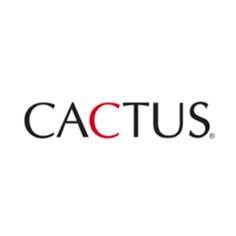Until the turn of the century, traditional employment was the mainstay of white-collar work. People were contractually bound to one firm, had fixed work hours, and had their roles and purview of oversight clearly defined. The concept of independent work was limited to blue-collar workers like miners and construction workers.
But in the 2000s, digital platforms started facilitating interactions between clients and service providers without them having to meet face-to-face. Buoyed by the flexibility afforded by technology, more people embraced independent work.
According to a McKinsey report, in 2016, up to 162 million people in Europe and the United States—20 to 30 percent of the working-age population—engaged in some form of independent work.1
In 2010, Cactus Communications (CACTUS) adopted the freelance model to build an editor base for its flagship brand Editage, which offered translation, editing, and publication support services. Before this, it relied on its in-house pool of editors and reviewers.
Since Editage catered to researchers who authored manuscripts in subjects as diverse as medicine, biotechnology engineering, physics, sociology, and business, it needed editors with subject-matter expertise. CACTUS decided to cast a wide net and tap into talent from around the world.
Vikas Narang, Chief Operating Officer and Head, Editage, says, “With customers across time zones, a global freelancing pool helped us scale up operations and offer services whenever they needed us. Today, over 3000 freelance editors from around 90 countries offer editing and translation services 24×7 to more than 500,000 Editage customers.”
These independent workers form an integral part of CACTUS’s editing, translation, and publication support services offered under the Editage brand.
Vikas believes that to keep building a pool of reliable freelancers, organizations need to invest in them. A few years ago, CACTUS started something called Freelancer for Life, a series of initiatives aimed at making CACTUS the most preferred organization for freelancers. Vikas, who oversaw these initiatives in their nascent stages, explains that “Freelancer for Life” aimed to add value to three important aspects of a freelancer’s life: Earning, Learning, and Meaning.
EARNING
Freelancers can choose to not put all their eggs in one basket. But freelancing for one organization has some advantages, especially if you’re performing a task that requires a lot of brain power—like editing.
To help freelancers meet their monthly earning goals, CACTUS introduced a system where freelancers are awarded points when they meet some criteria, for example, when they receive positive ratings from customers and for completing a certain number of words within a window.
The idea is to make freelancing for CACTUS lucrative. This system rewards high-performing freelancers and incentivizes them to take on more, which can help them earn more.
LEARNING
CACTUS conducts annual freelancer satisfaction surveys to identify strengths and areas for improvement in aspects like freelancer management, communication channels, and assignment fees. “We know from such surveys that freelancers are constantly looking for opportunities to upskill. We have teams that work on such input to create wiki resources that freelancers can choose to refer to,” Vikas says. He gives examples of the Freelancer Community Management and Skill & Knowledge Management teams that collaborate with Centers of Excellence (subject area-based hubs that freelance editors are mapped to) to develop resources for freelance editors and reviewers.
The Freelancer Community Management team, for example, curates articles for editors every month, including pointers on communicating with clients, earning positive feedback from clients, and improving productivity.
Some Centers of Excellence supplement these efforts with their own newsletters. These are customized for editors mapped to the respective Centers of Excellence.
MEANING
When asked to elaborate on the steps CACTUS has taken on this aspect, Vikas explains, “Most organizations have a transactional relationship with freelancers. The freelancer offers a service; the organization pays the fee. The benefits of such a relationship soon wear out. While freelancers prefer the independence that their category affords, they look for interactions beyond the transactional.”
Vikas feels that maintaining a positive relationship is critical but tricky when factors like pay, quality, client feedback, and operations come into play. With a large pool of freelancers, addressing grievances and replying to queries promptly becomes a challenge.
To address this challenge, CACTUS has team dedicated to freelancer engagement and grievance redressal. This team invites freelancers to contribute to the community newsletter and ensures that complaints and queries are addressed promptly. What’s more, contributions from freelancers are acknowledged through newsletters and a dashboard that is accessible to the entire freelancing pool.
CACTUS also involves freelancers in testing new systems and processes. Last year, CACTUS launched a workflow management app for freelance editors and freelancers were involved in the beta testing. Vikas believes that such exercises help freelancers feel like they are contributing to something meaningful.
CACTUS is working on several other initiatives to make freelancing for the company exciting and rewarding. For example, it is exploring ways in which technology can eliminate mechanical tasks like journal formatting. It has also tweaked its assessment system to reduce bias and make it more incentive-driven. Vikas acknowledges that these initiatives were a result of feedback from freelancers. “We are constantly making improvements to our freelancer-facing systems and feedback seems to suggest that we are heading in the right direction,” he says.
Reference:

